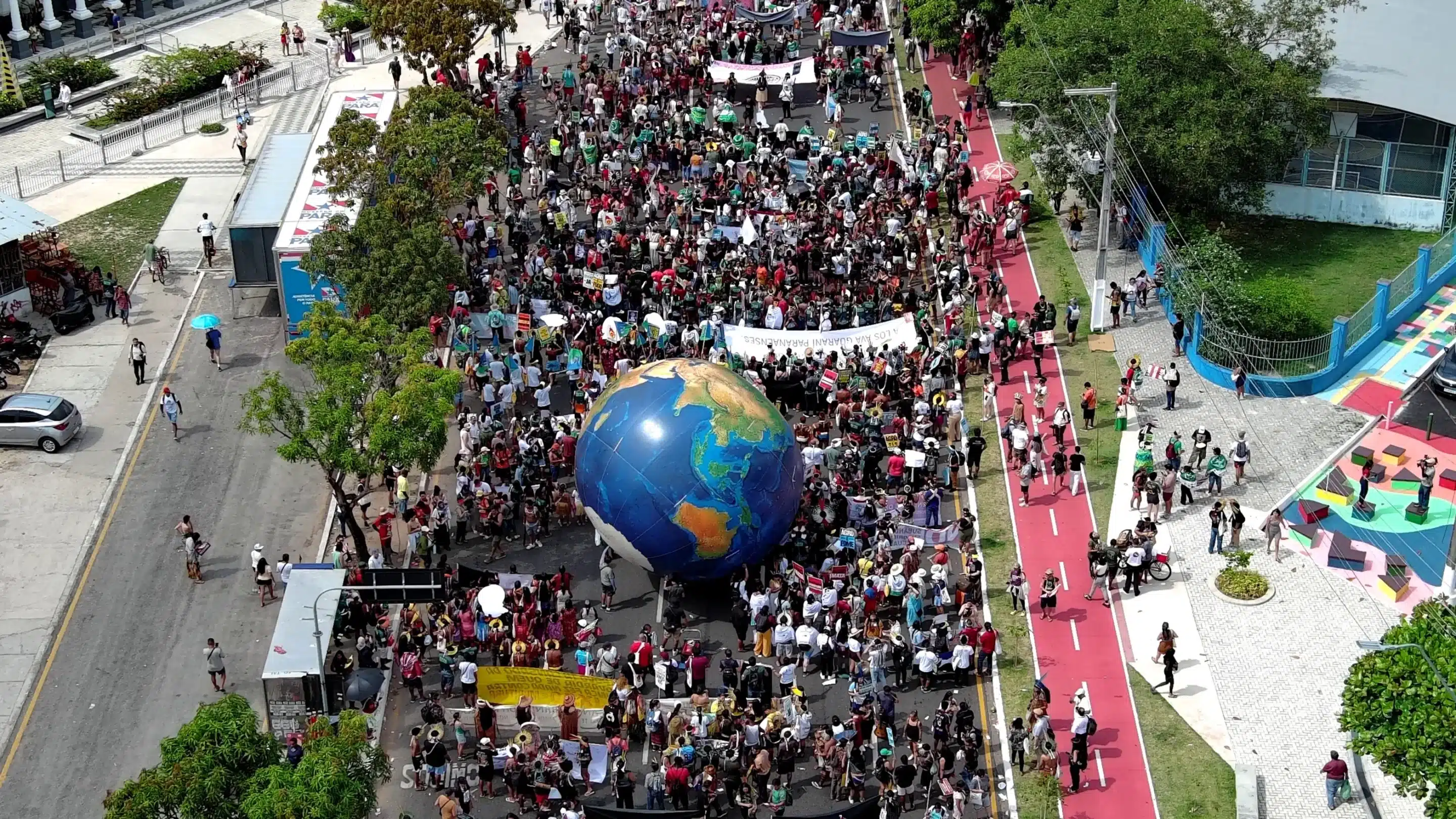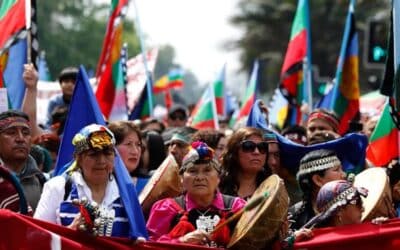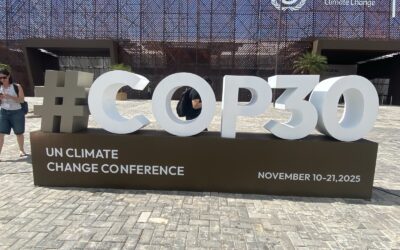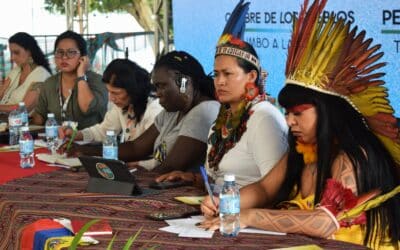From Rio de Janeiro-2024 to Belém-2025
By Mary Louise Malig and Pablo Salon
On November 16, 2024, the G20 Social Summit, which brought together more than 2,500 representatives of civil society organizations from 91 countries, issued a declaration of support for the financing mechanism for tropical forests known as the Tropical Forests Forever Facility (TFFF):
We must also enhance the protection of our tropical forests by establishing the Tropical Forest Forever Fund (TFFF), an international financing mechanism aimed at preserving these forests and supporting the socio-productive inclusion of the communities who live in and protect them. (G20 Social Summit Declaration)
Exactly one year later, on November 16, 2025, the “People’s Summit on the road to COP30,” attended by 25,000 participants, reversed this course and issued a declaration that included the TFFF among the false solutions:
We oppose any false solution to the climate crisis that perpetuates harmful practices, creates unpredictable risks, and diverts attention from transformative solutions based on climate justice and the well-being of people in all biomes and ecosystems. We warn that the TFFF, as a financial program, does not constitute an adequate response. All financial projects must be subject to criteria of transparency, democratic access, participation, and real benefit for the affected populations. (People’s Summit Declaration)
In contrast to mechanisms like the TFFF, which privatize forest financing, the People’s Summit Declaration demands that financing come from public funds and taxes on large polluting corporations:
We fight for public funding and the taxation of corporations and the wealthiest. The costs of environmental degradation and the losses imposed on populations must be paid by the sectors that benefit most from this model.
Likewise, the declaration rejects the administration of funds like the TFFF by organizations such as the World Bank:
We demand that international climate finance not be channeled through institutions that deepen inequality between the Global North and South, such as the IMF and the World Bank.
This complete reversal regarding the TFFF is a result of greater awareness of this mechanism for privatizing forest financing. The various analyses and debates surrounding the Tropical Forest Forever Fund have led to more than 200 organizations to sign the declaration “No to the TFFF: Yes to Forest Rights,” which denounces the following:
The TFFF mistakenly and deceptively considers deforestation a market failure that will be resolved by putting a price on the ecosystem services of tropical forests to attract private investment. The ecological collapse caused by capitalism will not be solved with more capitalism! (No to the TFFF: Yes to Forest Rights)
The fundamental criticism is that forests cannot be treated as commodities or financial assets to be privatized. On the contrary, this declaration emphasizes that forests are living systems that have rights, just like human beings who are part of Nature:
The TFFF fails to recognize forests as living systems with the right to life, to preserve their life cycles, to maintain their capacity for regeneration, to be free from pollution, to maintain their integrity, and to demand timely remediation and restoration. (No to the TFFF: Yes to Forest Rights)
Throughout various events and plenary sessions held parallel to COP 30, several delegates emphasized that the TFFF is a distraction because it fails to address the structural causes of deforestation—agribusiness, mining, and oil exploitation, among others—with concrete measures.
It wasn’t just civil society that turned its back on it.
The most serious consequence for the Brazilian government is that not only did civil society become critical of the TFFF, but its plan to raise $25 billion in loans from wealthy nations also failed. So far, only Norway has pledged $3 billion over ten years, and France €500 million. That is the effective support the TFFF has received. Germany, the United Kingdom, the United Arab Emirates, and other countries that were expected to contribute at least $10 billion by November 7th remained silent, making no concrete commitments to the TFFF. Brazil and Indonesia, which are supposedly the main beneficiaries of this mechanism, each had to contribute $1 billion to reach a total of $5.6 billion, barely a fifth of what they expect to obtain in public loans.
Having raised only $5.6 billion from sponsoring and beneficiary countries, it is impossible to imagine that the mechanism can attract $100 billion in investment. All the calculations made by the World Bank regarding the TFFF are collapsing due to the very logic of capital they aspire to conquer: private investors only invest when profits are relatively certain. Capitalism only bets on the green of dollars, not on the green of forests.
Do Brazil and Indonesia have authorization from their respective legislative assemblies to invest $1 billion each in such an extremely uncertain and inefficient mechanism? Various civil society organizations are asking: If Brazil and Indonesia have a total of $2 billion, why not channel it directly to indigenous peoples and local communities to strengthen solutions like agroecology and promote actions to curb the expansion of deforestation, mining, and oil extraction?
Photo credit: Erlan Sleur




